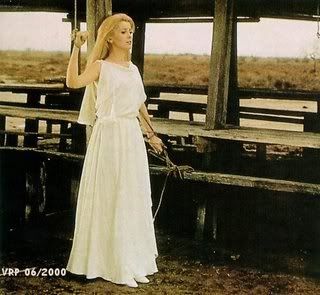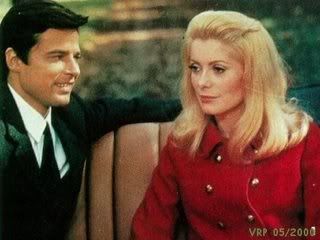
Continuing from yesterday’s post, today we occupy ourselves with the matter of control versus surrender as manifested in matters of relationships as well as sensual escapades that pertain to olfaction.
The amount of control we exercise in indulging our fragrant desires is not proportionate to the pleasure thus derived. On the contrary it varies according to the occasion and circumstances. Although usually control is assumed to be a desirable quality and one that is highly regarded, especially in western society with its competitive background, it is often that it also acts as a binding force that ties us to refusal of sensuous pleasure. The latter could be best arrived at through surrender to stimuli that have or have not been chosen by us in the first place. Imagine the surprising whiff of baking goods when walking past a bakery or the intoxication of smelling a familiar aroma on a stranger passing us on the street. Those are instances in which our degree of control of what we perceive is close to nil. Yet we derive pleasure from them.
Of course one could very well argue that the reverse is also within the sphere of probability. A close encounter with a smell that has foul associations in our mind makes the proximity with the vessel that perpetuates it insufferable, a true torture. In those instances we would dearly wish that we could exercise control over what we actually smell.
Surrender also has a somewhat fatalist tone to it, as if there is some predestined course of events, a kismet that accounts for our experiences instead of us shaping our present and future. The matter quickly becomes philosophical, which is perhaps beyond the scope of this post.
If we were to investigate cinematic examples of this conflict we revert to the 1960s classic by Spanish master director Luis Buñuel “Belle de jour”.
In it Catherine Deneuve stars as Séverine, the repressed wife of Pierre, an upper class doctor; sexually frigid with him, yet harbouring fantasies of a sadomasochistic nature which lead her to become a day-time high class prostitute in a posh brothel run by a knowledgeable French woman. There her fantasies take shape and form, although often following alternative avenues that include Chinese sex toys, assimilated necrophilia and voyeurism. However, although Séverine would like to act out her fantasies with her husband whom she loves, she capitulates to men to whom she is indifferent to in a surrender of the senses that satisfies some inner need that cannot be met in her bourgeois existence. Her rencontre with a criminal youth and also with an acquaintance who exerts control over her in daring tones –as he is intrigued by her iciness which he hopes to shatter- in her regular impeachable life will forever alter her cosmos and make her the victim or the culprit of fate.
As the director himself said:
"All my life I've been harassed by questions: Why is something this way and not another? How do you account for that? This rage to understand, to fill in the blanks, only makes life more banal. If we could only find the courage to leave our destiny to chance, to accept the fundamental mystery of our lives, then we might be closer to the sort of happiness that comes with innocence."

One particularly brilliant moment that pertains to perfume and our issue is the scene in the bathroom when Séverine accidentally smashes a big bottle of Mitsouko by Guerlain before she sets out to spend the afternoon at the brothel. (It can be seen in the trailer attached below, clicking on the screen). The bottle is in the big round style with the pyramid stopper that was quite popular all through the Sixties.
Mitsouko is a perfect example of a scent that is implicated in sex and the issues of control vs surrender. Much like the literary heroine that inspired its name (the Japanese girl in the novel “La Bataille”) it has a rich heart and sensual base that extol an animalic presence of labdanum and the earthiness of oakmoss and vetiver which combine to give the more ethereal elements of floral notes a subversive mantle. Although Mitsouko has all the pedigree of a well brought up upper-class lady, this is only the surface which one could easily scrape to find a ferocious needy sensuality about to manifest itself in surprising throes.

The subjects of fascism vs socialism, old age, Catholicism and sex are relentlessly explored and in the end the innocent girl becomes a cynical wile woman who believes in nothing any more while the worldly Don Lope played by Fernando Ray becomes rather belatedly the father figure that Tristana needed in the first place. As he reaches the peace he was pursuing all along he exclaims 'It's snowing so hard outside, but in this house, I'm nice and warm. What's there not to be happy about?' It is poignant that he recognizes only too late that acceptance, surrender to the course of life is a surer way to inner peace than struggling to impose one’s will.
Watch the "Tristana" trailer clicking on the screen.
Because to my mind there is an inherent melancholic touch to what I interpret as the loss of innocence, the perfume that I would choose to anoint the beautiful Tristana with is none other than L’Heure Bleue by Guerlain. One of their great classics, issued in 1912, it was inspired by “the blue hour”, that magical moment when the sun has set, but the sky hasn’t yet found its stars, when the odour of flowers intensifies.
Wearing L'Heure Bleue is like partaking in a secret rite of passage that an innocent soul goes through to meet their unintended destiny, just like Tristana in her quest for true love. The bittersweet smell of aniseed is the poignant thread that travels through the journey of life, full of experiences, full of disappointments that make the heart strings ache. Cloves and powdery heliotrope providing the backdrop of a darker theme, while the heady damascene rose and jasmine shine as the memorable sweet moments of happiness found adrift an existence that exerts no control over facts. As the scent of L'heure bleue unfolds, you are left with an impression of rejection, of refusal, of an idealism that is crashed by the vagaries of life that makes me inwardly sigh for all the lost causes and dreams that might have been.
It is also one of Catherine Deneuve's personal choices of perfume in her vast wardrobe of fragrances and I can very well see how she might be partial to its soft caress that whispers of times past.
Next post will persist in this genre with more perfume references. Stay tuned!
Pics from film Belle de Jour courtesy of toutsurdeneuve. Portrait of Deneuve by Raymond Darollet courtesy of Toutsurdeneuve. Clips from Youtube
.jpg)




